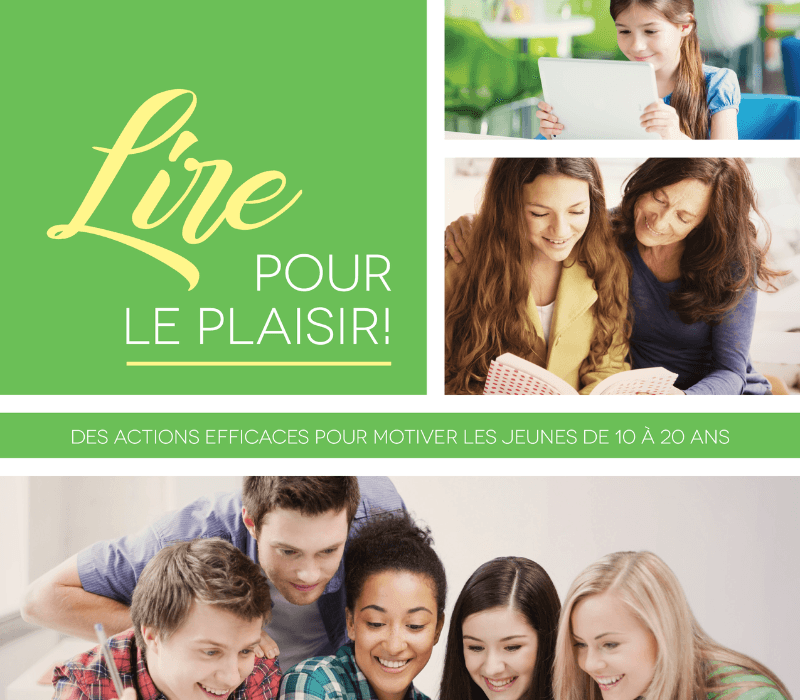A need for more support during a transition period
The transition from primary to secondary school is a significant step for 12-15-year-old students. Depending on the school subject, different kinds of reading are required, so children don’t read for the same reasons anymore (Cartier, 2009). Studies show that parental support in the child’s adaptation to this new environment that is secondary school (schedule management, more team projects, etc.) is a significant factor in their continued interest for school (Nadon, 2011 ; Soussi and Lurin, 2013) and in their success (Leclerc and Moreau, 2010). However, several families have a hard time getting involved, because of their own relationship with school, their own life story, etc.
In addition to that, the teenage years and the young adult’s life are periods marked by identity crises and social and professional transitions (Larose et al., 2006). To face these events, children need support.
Reading can play an important role here, and must be promoted not only to maintain and support their interest and success in school (CTREQ, Lire pour le plaisir!, 2017), but also to make the transition to higher education or the professional world easier.
It’s also important not to conclude that from a certain age, a teenager necessarily knows how to read, understands what they read, and is able to make good reading choices. On this aspect, the role of the parents, and the help they can provide their child, including in reading, is important throughout their child’s life.
Faire équipe avec les parents, Partenaires pour la réussite éducative dans les Laurentides, 2018

Effective actions to motivate children and young adults aged 10-20 years old
Read the document “Lire pour le plaisir!”, produced by the Centre de transfert pour la réussite éducative du Québec (CTREQ) for the Réseau québécois pour la réussite éducative (RQRE).
This document contains a selection of evidence-based practices, good ideas, and tools to help increase interest in reading in children and young adults aged 10-20 years old.
The three specific objectives of the project are:
- Producing an inventory of evidence-based practices and good ideas of practices to increase interest in reading in children and young adults aged 10-15 years old and 16-20 years old (ten practices identified per age group), considered “at risk” or “poor readers”;
- Producing a document that encompasses existing tools that can be used with these age groups, to increase interest in reading;
- Provide recommendations about the best ways to increase interest in reading in the targeted age groups.
